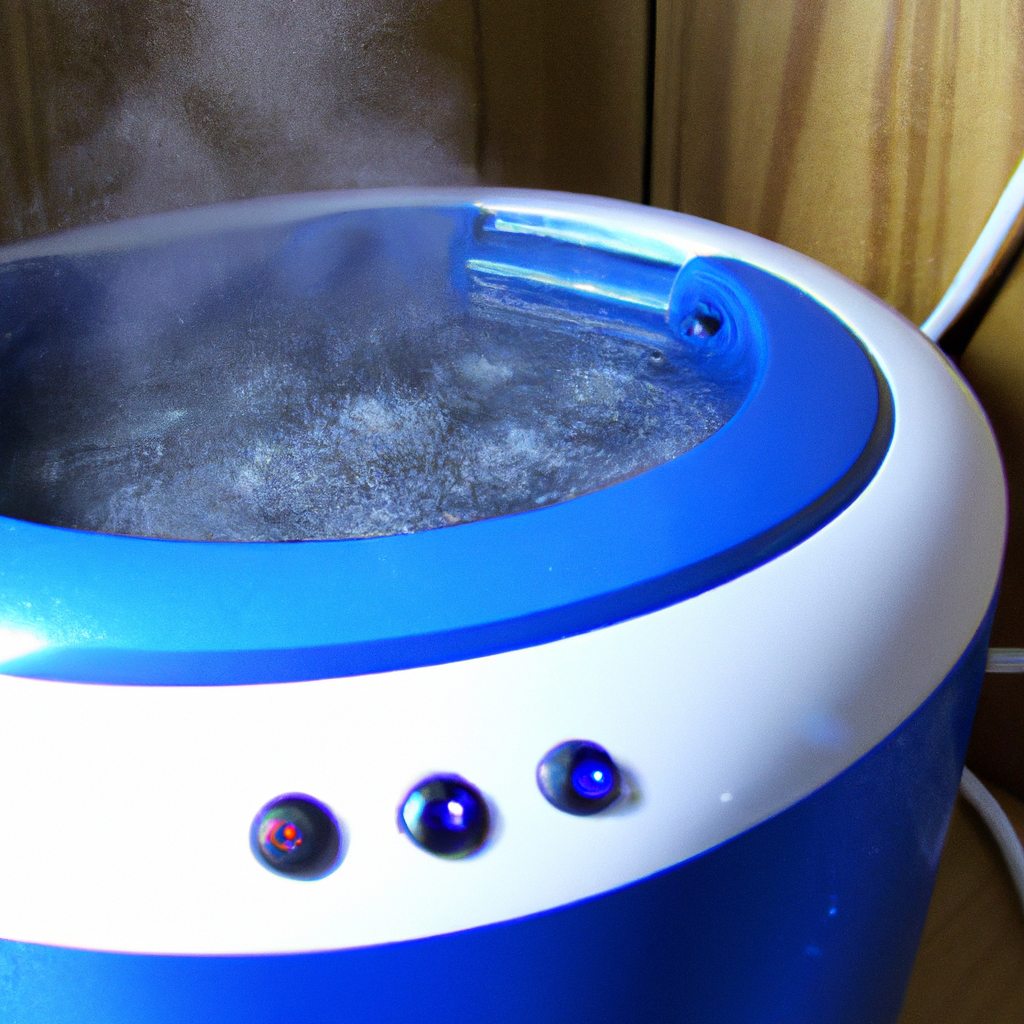Hard water is a common problem for many households, yet the safety of using it in a humidifier can be unclear. With the correct knowledge and understanding, one can make informed decisions on whether or not it is safe to use hard water in their humidifier.
Yes, it is safe to use hard water in a humidifier. However, it is important to check your humidifier’s manual to ensure that it can safely handle hard water and to also regularly clean and maintain your humidifier to prevent any mineral buildup or clog.
This article aims to provide readers with an insight into what effects hard water may have when used in a humidifier, and how they can ensure the safety of themselves and their household.
Humidifiers are essential appliances within homes as they help to regulate humidity levels throughout the home environment. It is important that users understand the effect that hard water will have on these devices, so that any potential problems are addressed before further damage occurs.
Hard water contains high concentrations of dissolved minerals like magnesium and calcium which can build up over time and cause deposits on internal components leading to improper functioning or even irreparable damage.
This article will discuss why it might not be safe to use hard water in your humidifier, as well as offering advice on alternative solutions if you do find yourself having difficulty with this issue.
By providing comprehensive information about this subject matter, readers should be able to make informed decisions regarding their own situation and feel confident in taking appropriate steps towards ensuring their safety while using a humidifier device.
Definition Of Hard Water
What exactly is hard water?
A paradoxical term, it has been touted as both a nuisance and a blessing.
Hard water contains higher levels of minerals such as calcium and magnesium than soft water does; this means it can have different properties that affect its usage in various ways.
On one hand, these minerals are beneficial to human nutrition but on the other they can cause damage to plumbing systems.
Understanding what hard water is and how it differs from soft water helps us gain an insight into the impact it may have on humidifiers.

The definition of hard water varies depending on who you ask. The World Health Organization (WHO) defines it as having more than 200 milligrams per liter (mg/L) of dissolved minerals whereas others define it as having over 180 mg/L or even 150 mg/L.
Regardless, all definitions agree that when high levels of certain minerals like calcium, phosphates, sulphates, bicarbonate and silica are present in drinking water then it is classified as being ‘hard’. These ions give rise to unique characteristics including taste, smell and viscosity which differentiate them from their softer counterparts.
Additionally, the presence of these minerals gives rise to specific problems related to scale build-up inside pipes due to precipitation reactions with soap or detergents used for cleaning purposes. To understand the implications that hard water may have on humidifiers we must first consider the effects of these mineral deposits within our homes and appliances.
Impact Of Hard Water On Humidifiers
Hard water can have a significant impact on humidifiers due to the high mineral content. These minerals, such as calcium and magnesium, are known for causing buildup in tanks and nozzles that lead to clogging of the device.
This decreases efficiency, increases costs associated with replacements or repairs, and reduces the lifespan of the unit. Furthermore, when hard water is used in an ultrasonic humidifier it can form a white dust from salt deposits which can be dispersed into the air surrounding the environment.
These issues caused by hard water create a need to understand how best to treat this type of water before use in a humidifier. To do this effectively requires understanding different treatment options available to make hardwater safe for use in a humidifier.
Treatment Options To Make Hard Water Safe For Use In A Humidifier
Understanding the treatment options for hard water can help people decide if it is safe to use in a humidifier. Water softeners are one of the most common hard water treatments and involve passing the water through a tank filled with salt-based minerals that bind to calcium, magnesium, and other metals that make up hardness.
This type of system reduces mineral levels but does not remove them completely. Other types of filters such as carbon block or reverse osmosis units reduce dissolved solids even further by passing the incoming water through several stages of filtration or membranes.
Finally, distillation involves boiling water until it turns into steam which leaves behind all suspended particles including impurities and minerals. The condensed steam then passes through another filter before being collected in its liquid form again.
These systems effectively remove almost all traces of impurity from the water leaving it safe for use in a humidifier without any negative effects on its performance. As each method has advantages and disadvantages associated with it, researching more about these treatments will provide an informed decision when using hard water in a humidifier.
Pros And Cons Of Using Hard Water In A Humidifier
Using hard water in a humidifier is like trying to fit a square peg in a round hole; there are pros and cons that must be considered. Hard-water can cause mineral deposits, making it difficult for the humidifier to function properly without frequent maintenance and cleaning.
This means that using hard-water in your humidifier may require more time, effort, and money than those using softer varieties of tap-water. On the other hand, some experts argue that utilizing hard-water treatment systems as part of your humidifier setup can help reduce these issues while still providing mist with minerals beneficial to health.
Ultimately, whether or not you should use hard-water in your humidifier depends on the specific needs of your home set up and how frequently you’re willing to maintain and service your device. Those who want an easy solution might opt for soft water instead; but if you’re looking for added health benefits from trace elements found only in harder varieties of water then opting for a hard-water/humidifier combo may be worth considering.
Conclusion
It is evident that using hard water in a humidifier can be both beneficial and detrimental. Hard water contains minerals, which can help to improve the humidity of an environment; however, if it is not treated appropriately those same minerals could clog up the filters and potentially damage the machine.
The impact of hard water on a humidifier is like a game of tug-of-war: depending on how it is handled, one side or another will eventually win out.
The best way to ensure that hard water does not harm a humidifier is by pre-treating it with either reverse osmosis filtration or demineralization before use. While this may seem tedious, these treatments are simple enough to do at home and can save you time and money in the long run by preserving your device’s life expectancy.
In conclusion, while hard water has its advantages when used in a humidifier, caution must be taken to make sure that it does not cause any damage to the appliance itself.
By following proper treatment steps prior to usage, one can enjoy all benefits without taking unnecessary risks.
It pays off more than ever for users to take preventative measures so their machines stay healthy and keep running smoothly – just as valuable as keeping an eye on your own health!




